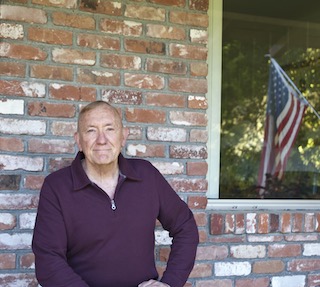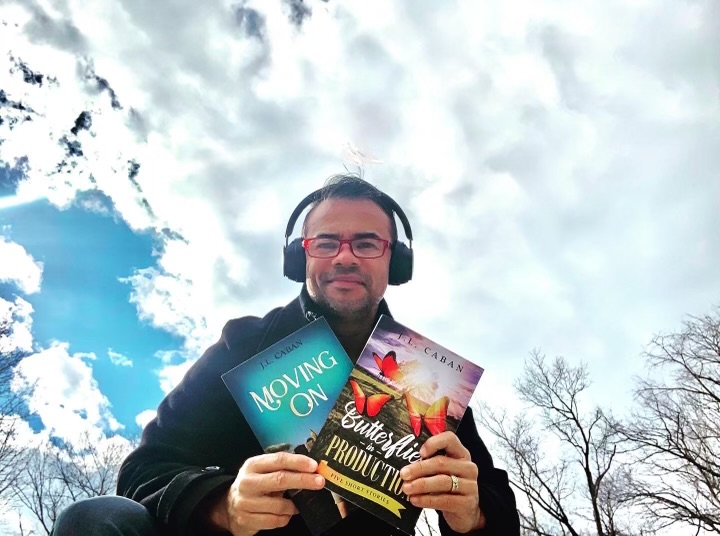The latest Ed Mitchell novel, “Centurion Witness” takes us back in time to the Ancient Empire of Rome where a dutiful warrior faces a life-changing decision. Ed Mitchell is not new to writing amazing thrillers. After a career as an Airborne Infantry Ranger, RAND Corporation Fellow, and an aerospace systems-engineer, Mitchell is an expert across different fields. His lived experiences give him real-world material for writing about the life of a warrior. We’re excited to learn about this Christian Biblical Fiction from a national and regional award-winning author.
You’ve served in the military and supported Homeland Security in different roles, such as an Airborne Infantry Ranger and Combat Analyst. Plus, you are a community activist in California. How did your experiences in these different roles give you insight into the life of this Roman warrior?
Military men and women are problem solvers. They assess a situation, consider alternatives, and take action to accomplish their mission. And when they are seasoned warriors their commanders often listen to their advice. That is exactly what Centurion Calix does in the story. Except he is simultaneously working for two commanders: the general that assigned him to secretly guard a newly commissioned officer, as well as for Pontius Pilate, the governor of Judea. And Centurion Calix’s advice to Pilate during and after the trial of Jesus, influences Pilate to guard the tomb of Jesus.
There are many books about different perspectives on the events around the life and death of Jesus. What is something unique your character and his point of view bring to narrative?
The Old Testament documents the first covenant that God set up with his chosen people, the Jews. But they did not live up to that agreement. That failure led to The New Testament, or second covenant, which replaced the first one. And the second covenant was with all people, meaning that Jews and non-Jews (gentiles) could both be saved. So, by selecting a gentile to be the protagonist in Centurion Witness, I provide the reader a fresh perspective, that of the Romans, experiencing the legendary events surrounding Jesus. Thus, Centurion Calix is the reader’s guide during the Roman trial where Pilate found Jesus innocent, then condemned him to death, and then protected his grave. Yes, I took a chance with this perspective. However, now it appears wise that I did. Here’s what Diane Donovan at Midwest Book Review released in March 2022: “Centurion Witness: A Tale of Resurrection and Redemption represents Christian Biblical fiction at its best.”
What was the most difficult plot point or character to write in Centurion Witness?
It was the holes in the Bible. One view of The New Testament is that it is a historical report about the really important things that happened during the life, trial, and death of Jesus. Which means that the less important stuff was left out of the text. For example, Joseph of Arimathea appears before Pilate after Jesus is hauled away to be crucified and there is no explanation of how Joseph even got into the governor’s palace nor any background for why he would be trustworthy. So, I tracked down historical data revealing Joseph was the Minister of Mines for the Romans in Judea and a very rich Jewish citizen. However, that research also uncovered old archeology explanation or conjecture claiming the body was carried 108 steps to Joseph’s family tomb. So, I say to myself, one of the richest men in Jerusalem moves the body to a tomb defiled by Roman killings that is within sight of the Jesus haters still at the crucifixion site. I don’t think so. Thus, I filled the hole in a manner that the reader can accept as reasonable or not.
Your previous stories are very contemporary and seem to be autobiographic. Are they?
Just the 216 love scenes. Seriously, what you read in my stories is not a one-for-one lifting out of my life. Instead, it’s an extension or adjustment of my experiences with people I’ve met or places I’ve seen. I express that rule as “leverage what you know.”
What I’ve leverage into my stories includes being a battered child, serving 25 years in the Army, traveling to desolate places around the world; as well as observing, like you have, current political, economic, and terrorist events. Additional spice comes from marrying, divorcing, being in car crashes, burying pets, having mentally ill family members, and losing people I love to cancer and heart problems. And one of those was my wife, who on our 31st wedding anniversary died in my arms.
The writing craft is molding such experiences into the plot, scenes, emotions, and character traits that I bring on stage for readers to enjoy. And when I do that well, my thrillers are realistic and believable while making it easy for the reader to connect with events in the story similar to those in their life. Often, I’ve been told: “Your stories are scary because they could happen.”
After readers have finished your Gold Lust Series and “Centurion Witness”, what can they expect next in the coming year? Do you have any projects in the works?
Thank you for asking. The saga of the Martin and Cantera families fighting terror continues with Mission Tehran. Synopsis: Pakistani security forces slip a stolen nuclear warhead to Iranian terrorists to move to Tehran for use against Israel. After a joint CIA and FBI team captures the Iranian transporters, the lead CIA officer decides on another course of action in Tehran. Only FBI Special Agent Cholo Cantera and Israeli Mossad Field Officer Oasis Jazir can prevent the deaths of millions of innocent Iranians.
To find out more about Ed Mitchell and “Centurion Witness” head over to Amazon.



